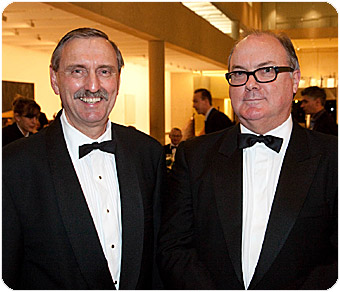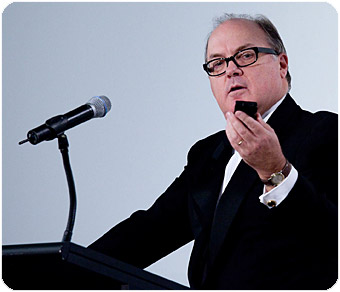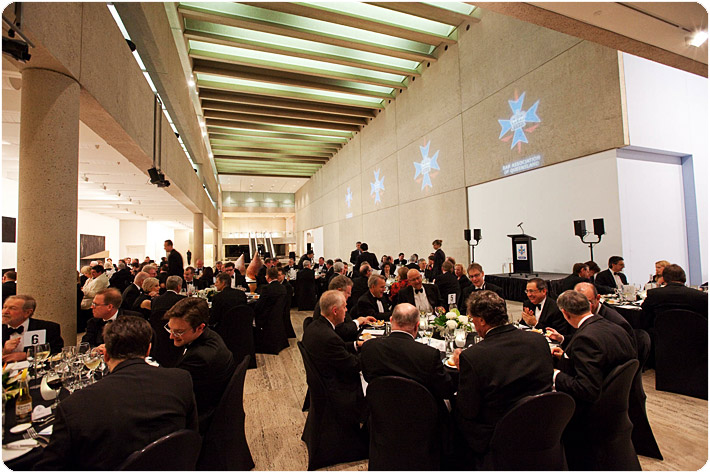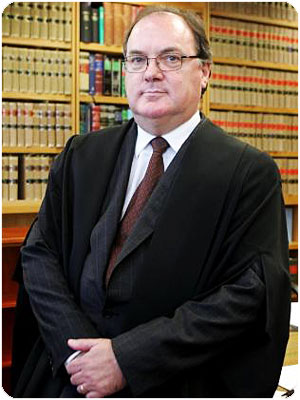A couple of years ago, I had a dream. I would like to be able to say that it was about the outbreak of world peace and global understanding or that the HIgh Court had over-ruled the Engineers Case; but sadly it wasn’t.
You will recall that at about this time two years ago there was much speculation in the Queensland media that Petero Civoniceva and Steve Price were unlikely to be fit for duties in the State of Origin campaign. This troubling prospect obviously concerned me greatly because I dreamed that one of them could not play, and that, as a result, I was selected to play in the front row for Queensland.
Well you can imagine the headlines I saw in my dream: “Queensland scrapes the bottom of the Origin Barrel – unfit and fat but small old man chosen to take on Blues.”
The editorial in the Courier-Mail was unkind: “We cannot forebear to mention that this man has not actually ever played Rugby League. Did the selectors think that the game was Rugby Union and that their job was to select the most immobile man in the State to anchor the scrum?”
Media comment was all to this effect. There was only one cliché that was positive: “At least we can expect that he will play with pride in the jersey.”
Anyway, the big night came. Running out the twenty yards to the middle of the field for the kick-off entirely exhausted me: thirty-seven years of shunning all forms of physical exercise will take its toll.
And then there was the kick-off – and wouldn’t you know, the ball came sailing towards me. I could hear the drumming of the hooves of the New South Welshmen – that is the most awful sound – and it’s made worse because you know they are coming to bury you, but you can’t look.
At the moment, just before the ball and the New South Wales forwards arrived, I remember thinking: “Perhaps this was not the best idea I’ve ever had.”
And at that moment, I woke up in a cold sweat.
And that’s the way I felt immediately after I accepted Dan O’Connor’s kind offer of this evening’s dinner. These occasions can be something of a challenge to one’s desire to maintain some shreds of one’s dignity.
 But Bob Gotterson has been relatively gentle, and indeed very generous, in what he has said. I must say that I am grateful that the wit of the Bar has become less barbed over the years.
But Bob Gotterson has been relatively gentle, and indeed very generous, in what he has said. I must say that I am grateful that the wit of the Bar has become less barbed over the years.
Nearly 30 years ago, I was junior to D.F. Jackson QC in a difficult trial against Bill Pincus QC and Ross Mack. Some younger members here tonight might not know that Ross had suffered the loss of an arm in a farming accident before he came to the Bar.
Pincus bowled breezily into court one morning while David and I were sitting at the Bar Table and said: “I notice that our side has more hair than your side.” To which Jackson replied: Yes, but our side has more arms!”
They bred them very tough at the Queensland Bar in those days.
I was grateful that Bob managed to keep the denigration of the Irish to a minimum. Dr Johson said that the Irish were an honest race – because they seldom spoke well of one another.
Because Irish sensibilities have been spared this evening, I am prepared to tell you an Irish joke.
Many years ago in the slums of Dublin, two priests who had worked for decades for the poor were honoured by the United Nations for their efforts. The UN invited the two priests to attend an awards ceremony at a Conference on Poverty at the United Nations in New York. They were flown first class to New York – where they were feted at a lavish dinner – champagne, caviar, lobster – the lot. They were presented with fabulous gifts and the next day they were flown home – again, first class.
They flew home in complete silence, but before their plane landed, one turned to the other and said: “By the faith, Father Paul, if that was the UN’s conference on poverty, I hope that they remember to invite us to their conference on chastity.”
I must also say that I have been somewhat pleasantly surprised that Bob actually found some amusing things to say about me.
In the last 20 years or so of my time at the Bar, I did little criminal work, and so there was none of the derring-do that one associates with names like Casey, or Cuthbert, or Sturgess or Spender, and which gives rise to uproarious stories about valiant defences of the indefensible.
Bob Gotterson knows, as do others of you who shared chambers with me, that there was little valiant about my practice. Waking up at 2.00 am to worry about what I had missed in preparing for the current case is not the stuff of heroes. No general is a hero to his valet; and no barrister is a hero to his chambers mates who see the diffidence and doubt before Court and (regularly) the disappointment afterwards.
 Those of you who were my juniors will know that there was little to excite or amuse in having to participate in my private war against the split infinitive or my life and death struggle with the semi-colon.
Those of you who were my juniors will know that there was little to excite or amuse in having to participate in my private war against the split infinitive or my life and death struggle with the semi-colon.
Nevertheless, it has always struck me that what we do is singularly stressful. Lord Atkin said of being a barrister that it is the only occupation in which one goes off to work each day to resist the attempt by one very intelligent person to prove to another very intelligent person that one is a congenital idiot.
The closest analogy with the kind of contest in which we engage is bullfighting. That is a contest in which an individual tries to dance elegantly in the presence of bulls and knives. We do the same except that the contest is all in the mind and emotions; and our greatest wounds come from the overdoses of our own adrenalin.
Putting on the robes before court is like the matador putting on his suit of lights before he meets the bull – this is not an image you should dwell upon before going to court, at least not if you are trying to de-stress.
But what barristers do is so stressful that it is possible over the long term only because of the support we give each other every day.
For myself, I often wondered how I managed to cope with the stress of going off each day to resist being proved a congenital idiot. And I see quite clearly, the answer lies in what we call the camaraderie of the Bar. That phrase can be over-used or used too glibly and so become a little bit hackneyed, but what it describes is real.
It is the camaraderie of common understanding and mutual support which we share that makes what we do possible. We are very important to one another.
No-one who does not do what we do can possibly understand the highs and lows. And we provide each other with the best exemplars: not all the time, but in our better moments.
Each of us is a better barrister, and often a better person, because we are inspired to try to emulate the noble qualities that another of us displays – in different ways and in different measure – every day.
The Bar is the most levelling of all professions: the barriers to entry are relatively low, the responsibilities are heavy but the rewards are great. And it is a real privilege to be permitted to speak up for one’s fellow citizens. Like most barristers who become judges, I still consider that my profession is barrister.

I am very grateful for my career at the Bar. I am especially glad that it has been at the Queensland Bar. I am very conscious of the generosity of those who have helped me.
There are many in this room to whom I owe special debts that I can never repay; and in a broader, but nevertheless real, sense I am truly grateful for the generosity of spirit which we all share with each other – at least in our better moments. Sometimes the Irish do speak well of one another and of other people as well.
So in conclusion, brothers and sisters at the Bar:
Can I say to my sisters at the Bar that I hope that they enjoyed working with me as much as I enjoyed working with strong, intelligent, decent women like my own sister.
And, as to my brothers at the Bar, you are the brothers I wish I had. Thank you for this evening.




 But Bob Gotterson has been relatively gentle, and indeed very generous, in what he has said. I must say that I am grateful that the wit of the Bar has become less barbed over the years.
But Bob Gotterson has been relatively gentle, and indeed very generous, in what he has said. I must say that I am grateful that the wit of the Bar has become less barbed over the years. Those of you who were my juniors will know that there was little to excite or amuse in having to participate in my private war against the split infinitive or my life and death struggle with the semi-colon.
Those of you who were my juniors will know that there was little to excite or amuse in having to participate in my private war against the split infinitive or my life and death struggle with the semi-colon.